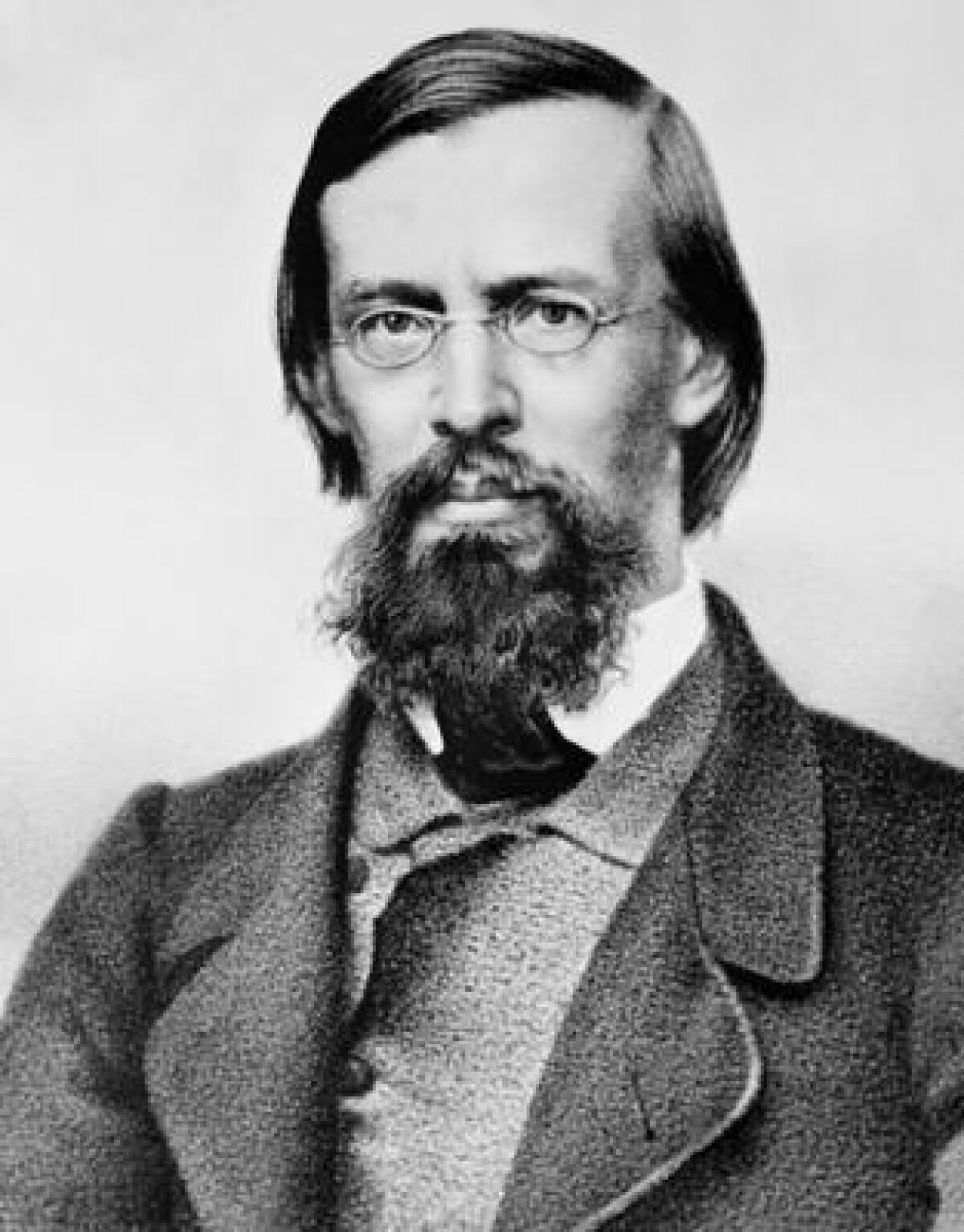Maykov Apollon
Apollon Maykov was born into the artistic family. His father, Nikolai Apollonovich Maykov (1796-1873), was a painter, an academic of the Imperial Academy of Arts in his later years. His mother Yevgeniya Petrovna Maykova (née Gusyatnikova, 1803-1880) loved literature and later in her life had some of her own verses published. The boy's childhood was spent in the family estate just outside Moscow, in the house often visited by writers and artists. Maykov's early memories and impressions formed the foundation for his later much lauded landscape lyricism, marked with what biographer I.Yampolsky calls "touchingly naive craving for the old patriarchal ways."
In 1834 the family moved to Saint Petersburg. Both Apollon and his brother Valerian were being educated at home, under the guidance of their father's friend, a writer, philologist and translator Vladimir Solonitsyn. Ivan Goncharov, a virtually unknown young author at the time, taught Russian literature to the Maykov brothers. As he later remembered, the house "was full of life, and had many visitors, providing the never ceasing flow of information from all kinds of intellectual spheres, including science and arts." At the age of 15 Apollon started to write poetry. Along with the group of friends who formed their domestic circle (V.G.Benediktov, I.A.Goncharov, P.P.Svinyin and others) brothers Apollon and Valerian were editing two hand-written magazines, Podsnezhnik (Snow-drop) and Moonlit Nights. It was there that young Apollon's earliest poetic exercises have been 'published'.
After finishing his whole gymnasium course in just three years, in 1837 Apollon Maykov enrolled into the Saint Petersburg University's law faculty. As a student he learnt Latin which enabled him to read Ancient Roman authors' originals. Later he learnt Ancient Greek too but until then had to content himself with French translations of the Greek classics. It was in the University that Maykov developed his passionate love of the Ancient Greece and Rome, something which influenced him immensely.
The first Apollon Maykov's poems (signed "M.") were published in 1840 (Odessa Almanac) and 1841 (Biblioteka Dlya Chteniya, Otechestvennye Zapiski). Guided by his father's example, he was studying painting too, but soon devoted himself to poetry wholeheartedly. Instrumental in this decision was P.A.Pletnyiov, the University professor whose encouragement for the young man was highly important. Fulfilling the role of a mentor, Pletnyov showed the first poems of his protégé to such literary giants as Vasily Zhukovsky and Nikolai Gogol. Maykov has never become a painter, but still those lessons had strong bearing upon his artistic worldview and influenced the style of his writing.
In the early 1842 his first collection Poems by A.N. Maykov was published, to much acclaim. "For me it sounds like Delvig's ideas expressed by Pushkin," Pletnyov wrote. Vissarion Belinsky responded with a comprehensive essay, praising the book's first section called "Of the Anthology Kind" (V antologicheskom rode), a cycle of verses stylized after both ancient Greek epigrams and traditional elegy. Despite certain flaws (which Belinsky subjected to thorough analysis too) the book was an overnight success, placing Apollon Maykov among Russia's leading poets of the time. Much gratified with the famous critic's close attention,[note 2] the young poet paid heed to all of the latter's advice and years later, working upon re-issues, did a lot of self-editing in direct accordance with them.
After graduating the University, Maykov joined the Russian Ministry of Finance as a clerk. Having received a stipend for his first book from Tsar Nicholas I, he used the money to travel abroad, visiting Italy (where he spent most of the time writing poetry and painting), France, Saxony, and Austria. In Paris Apollon and Valerian attended lectures on literature and fine arts at the Sorbonne and the College de France. On his way back Maykov visited Dresden and Prague where he met Vaclav Hanka and Pavel Jozef Safarik, two leaders of the national revival movement. The direct outcome of this voyage for Apollon Maykov was a University dissertation on the Ancient Slavic people's law.
In 1844 Maykov returned to Saint Petersburg to join Rumyantsev Museum's library as an assistant. He became actively involved with the literary life of the Russian capital, contributing regularly to several leading journals: Otechestvennye Zapiski, Finsky Vestnik, Sovremennik. He also debuted as a critic and published several essays on both literature and fine art, reviewing works by artists like Ayvazovsky, F.P.Tolstoy, Fedotov, from the position of a "natural school" doctrine follower.
Share:









